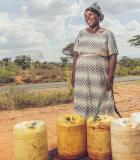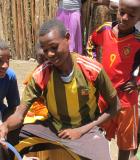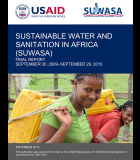Sustainable Water and Sanitation in Africa (SUWASA)
The Sustainable Water and Sanitation in Africa (SUWASA) program was designed to improve access to safe, reliable, affordable, and sustainable water and sanitation services for unserved and underserved urban populations in sub-Sahara Africa. The program fostered urban water sector reforms to solve policy, institutional, regulatory, financial, and operational challenges that hindered the effective delivery of sustainable water and sanitation services for urban residents in nine African nations.
SUWASA worked in Ethiopia, Kenya, Liberia, Mozambique, Nigeria, Senegal, South Sudan, Uganda, and Zambia to achieve long-term, financially sustainable water sector interventions by applying market-based principles through a collaborative approach with governments and service providers.
The SUWASA program represents USAID’s first significant region-wide urban water and sanitation reform effort in Africa. SUWASA’s achievements were based, in part, on employing and working through African experts with a rich understanding of the challenges and culture of the continent. Tetra Tech successfully worked with donors and development partners to promote best practices and sector learning within the region.
SUWASA was designed to support, demonstrate, and promote new ways of operating in the sector that would improve sector efficiency and enable water providers to deliver better service to their customers.
Related Documents
Related Projects






